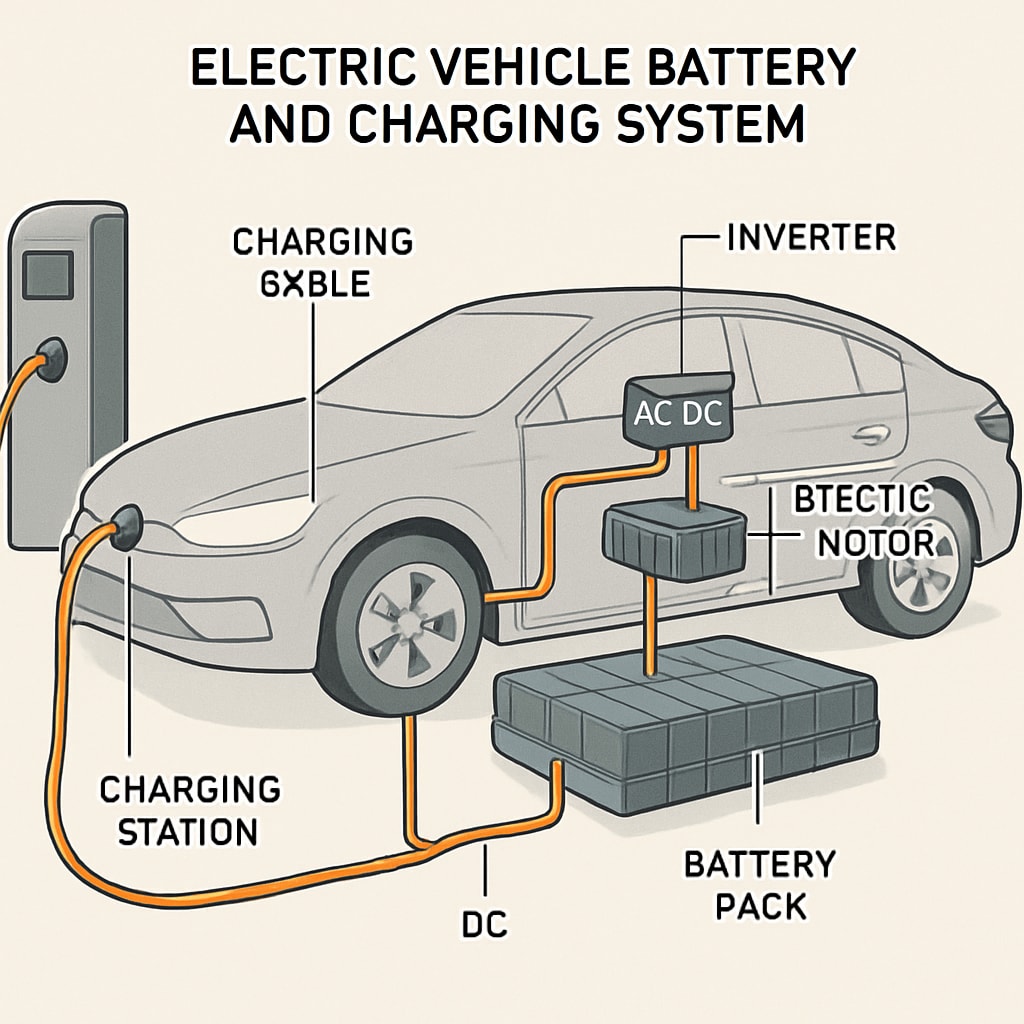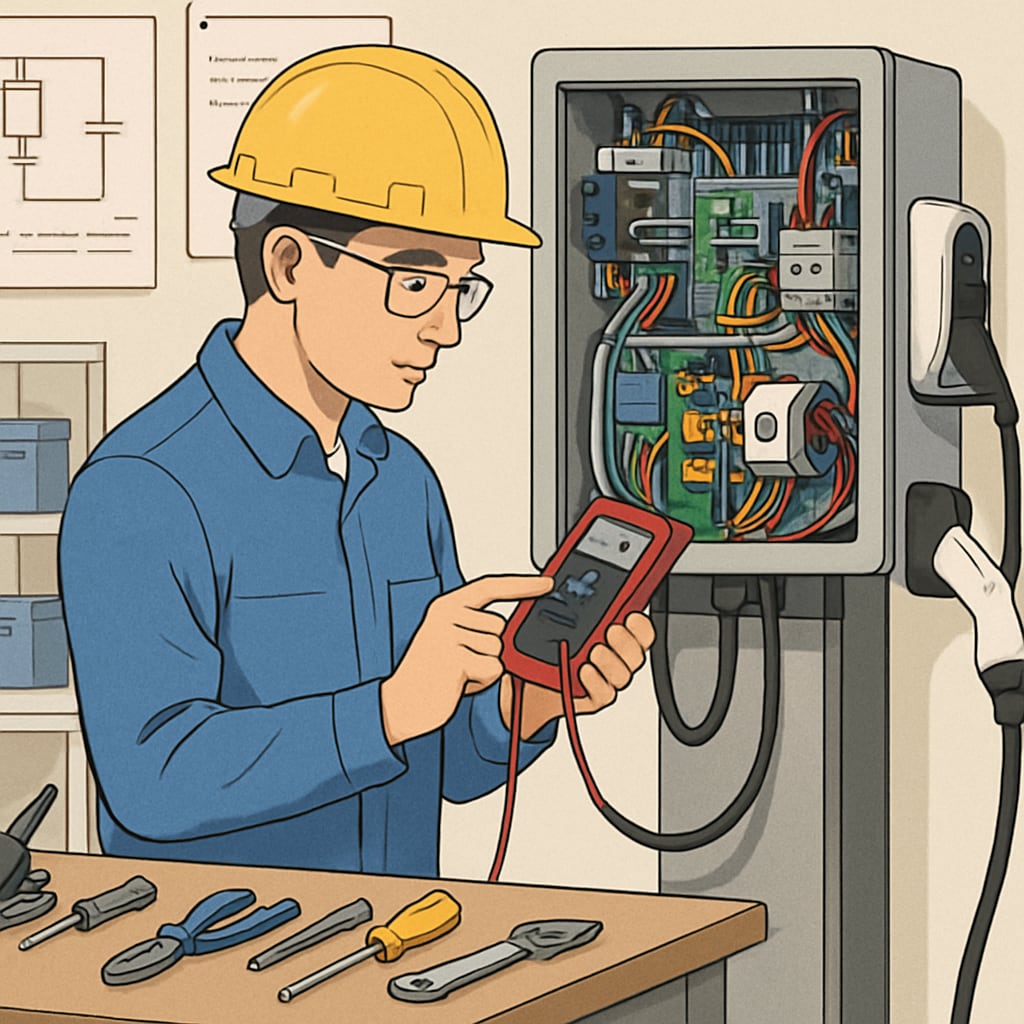The automotive industry is undergoing a profound transformation. With the rise of electric vehicles (EVs) and smart technologies, “electrical learning, automotive industry, career development” has become a pivotal factor for professionals looking to thrive in this evolving field. Mastering electrical knowledge is no longer optional—it’s a necessity. This article examines the strategic importance of electrical learning for career growth and outlines practical steps to leverage this expertise in the automotive sector.
The Role of Electrical Knowledge in the Automotive Industry
As the automotive sector embraces electrification, the demand for professionals skilled in electrical engineering and related technologies has surged. Electric vehicles, autonomous systems, and intelligent sensors are now integral to modern automotive design and manufacturing. Knowledge of electrical systems enables engineers and technicians to understand and troubleshoot complex EV components such as batteries, inverters, and charging systems.
In addition, smart technologies like advanced driver-assistance systems (ADAS) and vehicle-to-everything (V2X) communication rely heavily on electrical expertise. Professionals equipped with electrical knowledge are better positioned to contribute to innovative projects, solve technical challenges, and lead the development of cutting-edge technologies.

Why Electrical Learning Is Critical for Career Development
Electrical learning is not just about acquiring technical skills; it’s about staying relevant in an industry that is constantly evolving. For example, understanding how EV powertrains differ from traditional internal combustion engines can open new career paths in design, testing, and maintenance. Similarly, expertise in smart technologies can lead to roles in software development, system integration, and data analysis.
Moreover, companies are increasingly seeking professionals who can bridge the gap between traditional automotive practices and emerging innovations. Engineers and technicians who invest in electrical learning will find themselves in high demand, often commanding competitive salaries and opportunities for advancement.
To stay ahead, professionals should focus on building a strong foundation in key areas such as circuit design, energy storage, and power electronics. Supplementing this knowledge with practical experience through internships or apprenticeships is equally important.

Steps to Master Electrical Knowledge for Automotive Success
To build a successful career in the automotive industry, professionals can take the following steps to enhance their electrical expertise:
- Enroll in specialized courses: Numerous online and in-person programs cover topics such as EV technology, circuit design, and power management.
- Gain hands-on experience: Internships and apprenticeships at automotive companies can provide practical insights into electrical systems.
- Stay updated on trends: Regularly read industry publications and attend conferences to learn about the latest advancements in EVs and smart technologies.
- Collaborate with peers: Joining professional networks and forums can help exchange knowledge and solve complex challenges.
- Earn certifications: Certifications in areas like power electronics or automotive software can add credibility to your expertise.
By strategically pursuing these steps, professionals can position themselves as indispensable assets in the automotive industry.
Looking Ahead: The Future of Automotive Careers
The shift toward electrification and intelligent systems is reshaping automotive careers. Roles that were once exclusively mechanical now demand interdisciplinary knowledge, blending electrical engineering, software development, and data analytics. As a result, professionals who embrace electrical learning will not only adapt to these changes but also drive them forward.
The automotive industry offers immense opportunities for those who are proactive in their education and skill development. Whether you are an aspiring engineer or a seasoned technician, investing in electrical knowledge can pave the way for a rewarding and dynamic career.
In conclusion, electrical learning is more than a technical skill—it’s a cornerstone of career development in the automotive industry. By understanding the strategic value of this expertise and acting on it, professionals can secure their place in an exciting and transformative future.
Readability guidance: Use concise paragraphs and bullet points to summarize key takeaways. Maintain an engaging narrative while ensuring technical accuracy. Integrate transition words such as “therefore,” “in addition,” and “for example” to enhance flow and readability.


